Pure Food and Drug Act Text
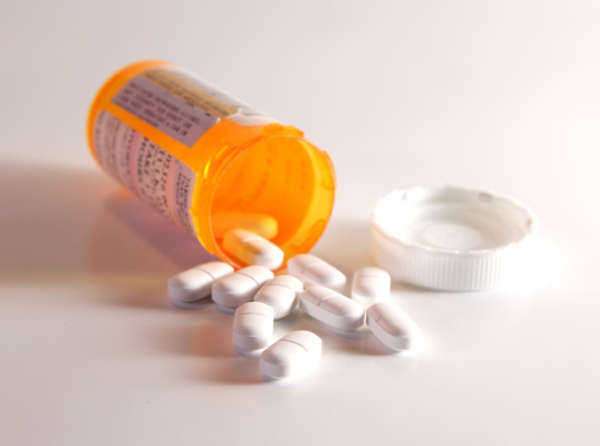


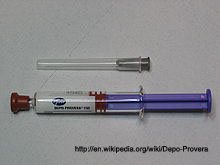
What is Depo-Provera?
Depo-Provera is the brand name of depot medroxyprogesterone acetate which is a drug that prevents pregnancy. It is manufactured and distributed by the Pfizer Corporation. It is administered via an injection and protects against pregnancy for three months. It is highly successful at preventing pregnancy and requires less drug interaction than once-daily birth control pills. For this reason, Depo-Provera’s status a as long acting reversible contraceptive is highly desirable for many that cannot maintain a contraceptive regimen such as with birth control pills.
Where can I get a Depo-Provera shot?
Most medical providers and some organizations such as Planned Parenthood have the shots available. It is the responsibility of the patients to regularly schedule the shots and to be aware of the potential risks of using the shot. In addition to the benefits, there are side effects that may prohibit some women from taking this shot.
How does Depo-Provera work?
The Depo-Provera shot works by releasing the hormone progestin into the body which works on the ovaries to prevent them from releasing egg and increasing vaginal mucous to inhibit pregnancy. This is effective for 99 out of 100 women that receive the shot. There are some side effects including irregular menstrual periods, depression, dizziness and acne and most importantly, loss of bone density.
What is the controversy around the use of the Depo-Provera shot?
As Depo-Provera has been found to decrease bone-density women with a history of or risk factors for osteoporosis should not receive this shot as it will exacerbate this condition. All women will need calcium and vitamin D while on this shot. Still, others have made the claim that the bone density loss that accompanies the shot is not articulated properly to women that receive the shot and that the bone density loss is irreversible.
What should I do if I have experienced bone density loss?
Bone density loss can lead to a number of injuries and an increase of potential injuries. If you feel that you were not provided adequate notice of the dangerous of bone loss, you may be able to hold the provider or manufacturing company liable for damages. As in all liability cases, the victim must prove that that injury or harm was on cause on the part of the provider and that the provider was aware of the potential harm but chose not to inform the plaintiff about the danger. Especially in cases with bone loss, the harm is potentially irreversible and imperils their ability to have children or live a healthy life.
Speak with an attorney if you feel you have not been adequately warned or you feel your medical provider is liable for failing to inform you of the potential risks of using this medication.
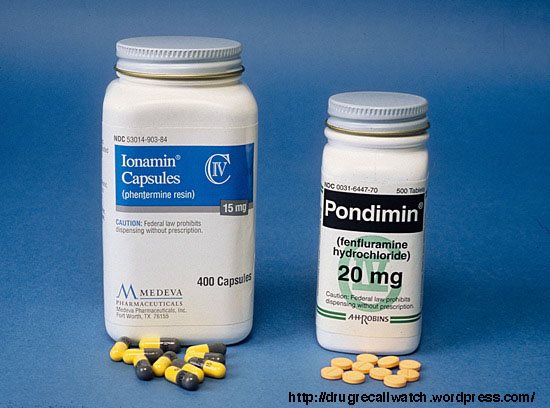
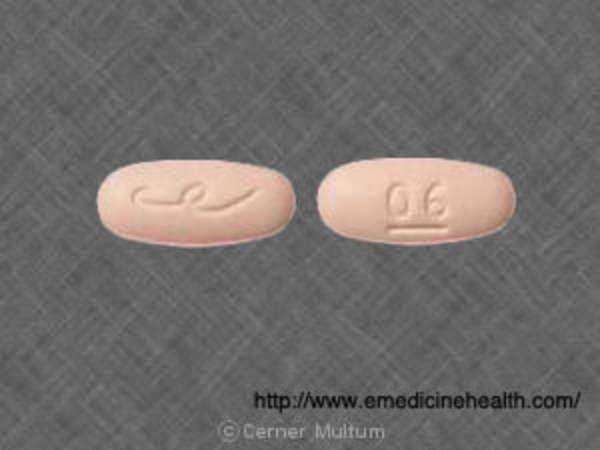
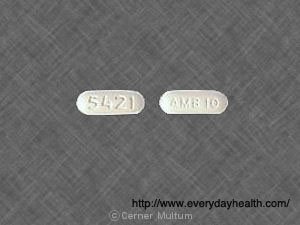

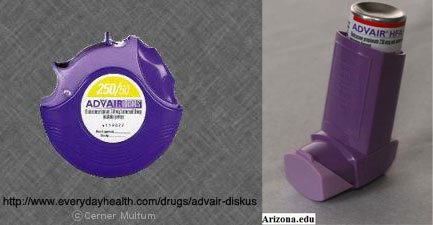
Advair Diskus vs Advair HFA
The prescription medication Advair is issued in either dry-powder or aerosol-inhalant form. The difference in delivery method is the primary distinction when evaluating Advair Diskus vs. Advair HFA. The former is a dry-powder medication that is inhaled in the form of a "blister." When considering Advair Diskus vs Advair HFA, a physician will choose the latter if your breathing difficulties are so severe that you are unable to inhale the drugs in dry pellet form.
Both forms utilize the same mechanisms and carry similar risks. When weighing Advair Diskus vs Advair HFA, a physician must inform you of the potential consequences that apply to both applications. In considering Advair Diskus vs Advair HFA, the same adverse reactions can form, including skin rashes and cardiac difficulties. Regardless of your prescription, it is vital that you report any skin problems, irregular heartbeats or other symptoms that arise to your medical proessional.
When considering Advair Diskus vs Advair HFA, a physician must ensure that you are not allergic to milk. If so, both forms of this medication are not suitable. Similarly, when weighing whether to prescribe Advair Diskus vs Advair HFA, a physician will ask for your medical history, particularly a recap of your liver, kidneys lungs and information concerning diabetes.
One of the primary differences between Advair Diskus vs Advair HFA concerns the degree of attention required during administration. The former comes in blister form, meaning each pellet forms a complete dose. In contrast, the latter requires you to carefully monitor the counter on your inhaler—you should receive a refill when the counter reads "020." If deciding on the latter, a doctor will explain that your regular emergency inhaler is not a suitable dispensing form of this medication. A special inhaler with an expiration date will be issued along with Advair.
Whichever form of the drug you are issued, it is vital that you do not exceed your daily recommended dose. Also, taking the drug to mitigate a sudden attack of asthma will not alleviate your symptoms. When considering Advair Diskus vs. Advair HFA, keep in mind that neither form is an appropriate substitute for an emergency inhaler.
With proper monitoring by your doctor, you should be confident that either form will prove efficient without imposing significant side effects. However, if serious side effects arise, you may have grounds for litigation. Only a doctor may properly evaluate whether a doctor was negligent in supervising your use of the drug or whether the manufacturer failed to provide adequate warning concerning potential side effects. Whether using Advair Diskus vs. Advair HFA, you should check and see whether you can recover damages and expenses through civil court.
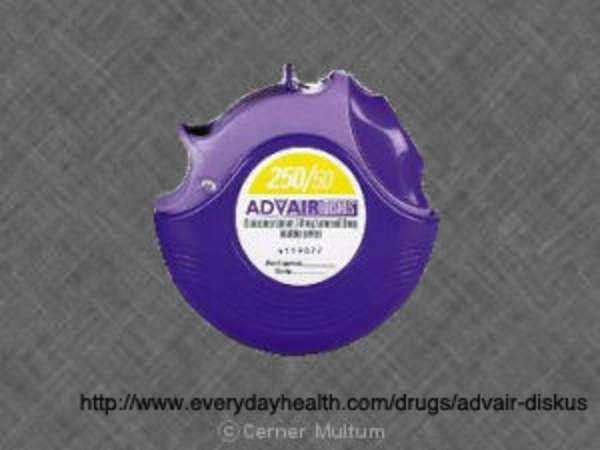
A brief guide to Advair Diskus prices
The prescription medication Advair Diskus is issued to patients with asthma or chronic obstructive pulmonary disease (COPD). If you are worried that the Advair Diskus price is beyond your means, there are several options that can be considered to mitigate your expenses.
The most important factor concerning Advair Diskus prices is health insurance coverage. You should review the terms of your policy—if applicable–to see if the costs of Advair diskus is covered by your insurance, if any. If prescribed the drug for asthma, extended indefinite treatment is unsafe and unlikely to be prescribed. Therefore, you can roughly calculate how much the Advair Diskus price will cost by the end of your course of treatment.
Advair’s manufacturer, GlaxoSmithKline, currently has several offers for first-time users. You may be able to reduce Advair Diskus prices by procuring a free 30 day supply on a trial basis. Those who are covered by Medicare or Medicaid are not eligible for this offer. Other restrictions are listed that may affect your ability to take advantage of this waiver of the Advair Diskus price. The manufacturer also currently offers a $10 coupon for each dose of the drug. All offers related to Advair Diskus prices are subject to change.
You may wish to visit more than one pharmacy to find out what the cost difference is. If a particular Advair Diskus is beyond your means, you may wish to find an online pharmacy retailer. However, it is important that you take steps to ensure that you are not taken advantage of. Retailers quoting low Advair Diskus prices must require a prescription to issue the drug. An online pharmacy which does not do so is acting illegally and cannot be trusted to provide safe medication.
Do not purchase the medication from any online pharmacies which are not based in the United States no matter how low their listed Advair Diskus price. Such companies are not subject to American regulation and cannot be prosecuted by the government if you are cheated.
Regardless of what you pay in Advair Diskus prices, you should have a reasonable expectation that the drug will be safe and not result in serious medical problems. Serious side effects including allergic skin reactions and cardiac problems can result. These are not tied to the Advair Diskus price. When such problems ensue, consult a physician immediately. Discontinuation of the drug may be indicated.
If you pay the Advair Diskus price and begin a course of treatment which seriously damages your health, consider litigation. Gather receipts documenting Advair Diskus prices, which will be part of the compensation sought by a lawyer. You should also assemble all physician reports related to your treatment. In addition to recovering the total cost paid relating to the Advair Diskus price, a lawyer can sue for damages and additional medical expenses.

A brief guide to Advair Diskus instructions
Prescribed to patients with asthma or chronic obstructive pulmonary disease (COPD), the use of Advair Diskus is attached with many risks. To prevent adverse reactions from forming, it is vital to follow a physician's Advair Diskus instruction and guidelines. Advair should only be issued to patients who are already on a long-term asthma medication—the drug works in tandem with other medications that may not be wholly efficient in controlling asthma conditions.
Advair Diskus should not be prescribed to individuals with milk allergies. Additionally, prescriptions for diabetics or epileptics should be carefully monitored.
Advair is intended for short-term use. Advair Diskus instructions state that use of the drug should be diminished and discontinued once symptoms are controlled. Long-term usage increases the risk of asthma-related problems, up to and including fatalities.
Advair Diskus instruction sets the initial dosage for children and adults at 100 micrograms taken twice daily. In case of a serious asthma attack, do not take an extra dose. Advair Diskus instruction regarding intake recommends that patients allow twelve hours to pass between doses. Once inhaled, the patient should rinse their mouth with water without swallowing.
Once patients have begun taking the drug, they must follow their physician's Advair Diskus instructions and be attentive to any side effects. Rashes and hives indicate that patients are experiencing an allergic reaction. These symptoms indicate that even when obeying Advair Diskus instruction regarding use, your body is not suited to this form of medication. Additionally, report blurry vision or accelerated uneven heartbeats to your doctor immediately.
Advair Diskus instructions note that the drug's use weakens the immune system, raising the risk of pneumonia and other diseases. Additionally, children who take the drug may have their growth impeded.
You must follow all Advair Diskus instructions carefully. Do not overuse the drug in an attempt to relieve your symptoms. If you disobey the Advair Diskus instruction and guidance of a physician, you will have no legal recourse if serious side effects result.
Patients who are seriously harmed by use of the drug despite obeying a physician's guidelines may wish to consider litigation. Legal professionals well-versed in the field of personal injury law, are best suited to prove negligence or false reporting of potential side effects. A physician should maintain documentation of their Advair Diskus instructions as part of their records in case a lawyer requires access.
Follow the Advair Diskus instructions provided by your doctor before following any other advice on intake, dosage and frequency. The Advair Diskus instructions provided by the medical care provider or pharmacy are important because they are tailored to your specific needs. It is your obligation to clearly follow the Advair Diskus instructions provided to you.
Is Advair right for me?
Only your doctor can answer this question. Many patients, especially those allergic to milk proteins, will not be able to use Advair. To see if the medication is a suitable match for your needs, you must consult with a medical professional.